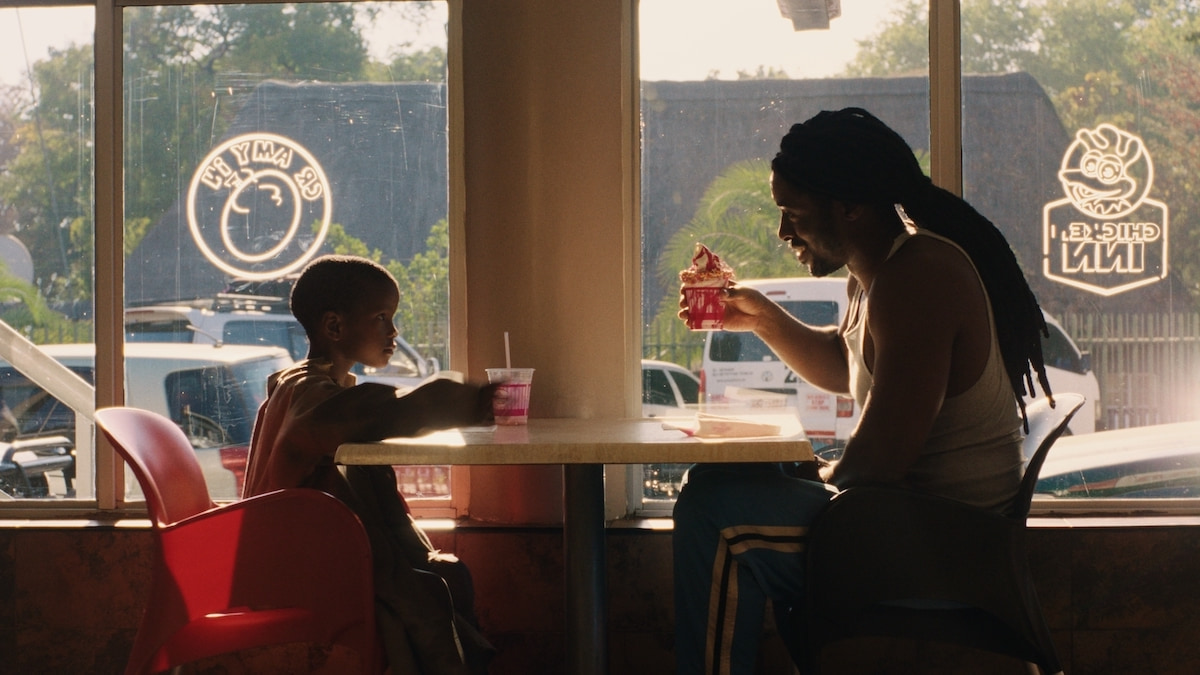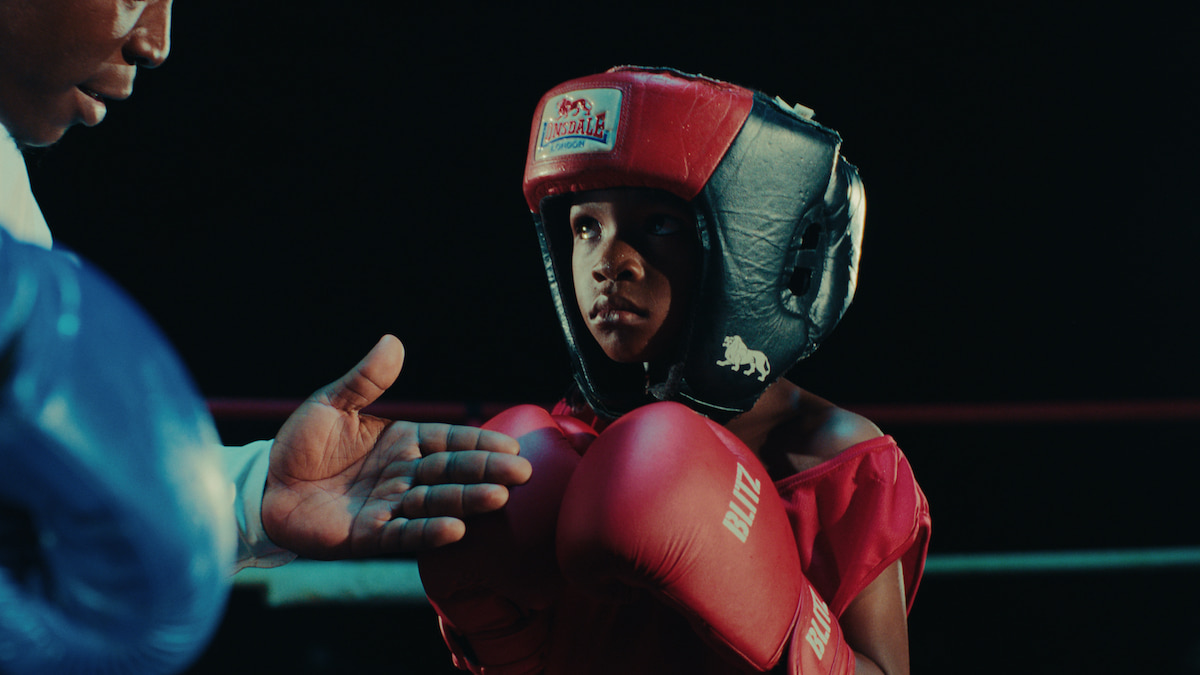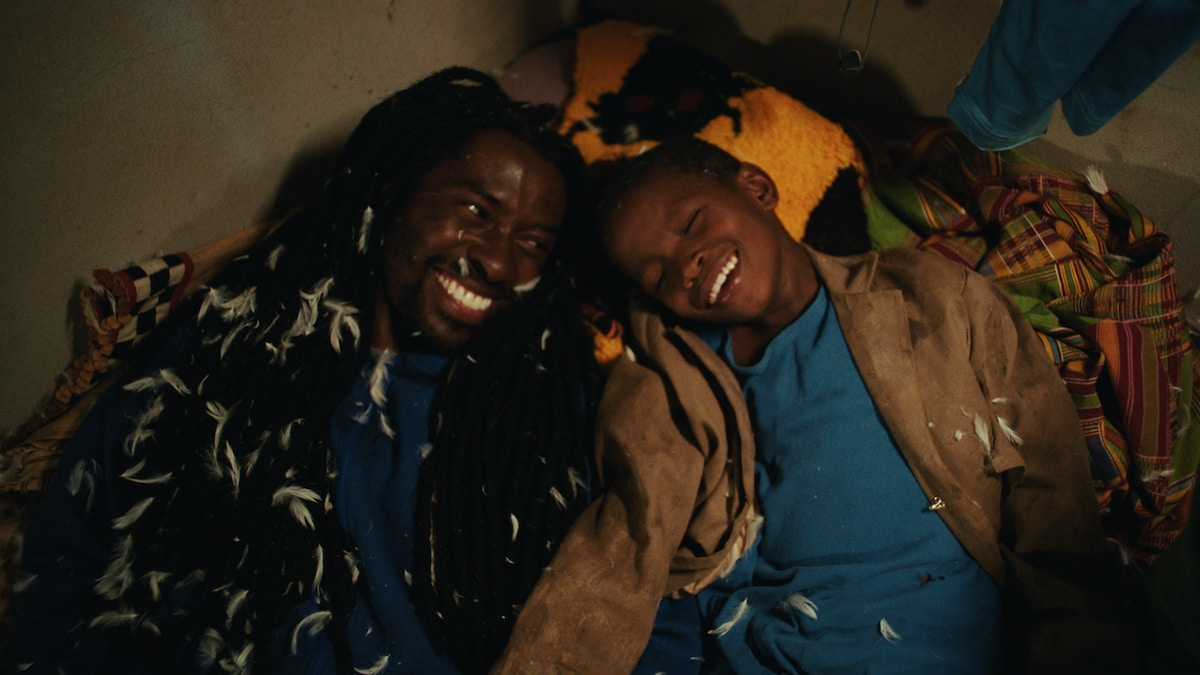

Few films successfully portray pain alongside joy without sacrificing one for the other. In just 22 minutes, British filmmaker Jessica Rowlands’ “Rise” achieves this rare equilibrium with masterful ease, leaving the viewer both moved by its main characters and in awe of its bold yet tender craft.
The short film packs a punch in its portrayal of a boxing coach in Victoria Falls, played by Tongayi Chirisa, who takes Rise, a young boy with big dreams, under his wing. It earned a spot at this year's Tribeca Film Festival in New York, making history as the first Zimbabwean film ever to play at the showcase. Sikhanyiso Ngwenya, who plays the buoyant Rise, also made history this year as the youngest winner of the Outstanding Actor category in the National Arts Merit Awards.
Rowlands, the writer and director, grew up going back and forth between London and Zimbabwe, where her parents moved in the late 1980s. While in Victoria Falls, which Rowlands said “feels like home,” she met Tobias Mupfuti, who runs Victoria Falls Boxing Academy, where he trains and mentors orphaned children in hopes of giving them a better life. Years later, she would write “Rise” inspired by Tobias’ real-life experiences.
With visual and auditory elements that feel distinctly local, “Rise” captures what makes Zimbabwean stories special. Ahead of the film's forthcoming screenings in Zimbabwe, London, and New York, Rowlands spoke to Landlocked about her journey of crafting the film. The interview has been edited for length and clarity.

How did it feel going back to Zimbabwe in the capacity of a storyteller while you were working on “Rise?”
It was amazing. I've spent time in Zim every year of my life, pretty much consistently, because my mom still lives there, and my dad goes back and forth. Going back professionally kind of happened unintentionally. I was living in the US, and I actually went home to see my mom to get a break. I just needed a perspective change and some time out. I was at a turning point in my career and wondering what kind of stories I wanted to tell, what mattered to me and what felt important as a storyteller and filmmaker.
It just so happened that on that trip, I was speaking to my friend Tobias, and it just occurred to me that his story is exactly the kind of story I want to tell and that I want to see as an audience member. It's the kind of story that I think is worth telling. It's so different from the ecosystem and bubble that I'd been in LA and the kinds of stories that get regurgitated and circulated and retold. I was really craving something else. Having Tobias trust me with telling his story and taking on that responsibility was really scary. But what excited me was the opportunity to work there and to use all my friends and the creative, amazing people in the community and to do something really community-based — getting to spend that time with people who were super creative and talented but lacked opportunity, a stage, a platform and a voice.
Your film also made history as the first Zimbabwean film to premiere at Tribeca.
It was crazy. I was really surprised that no Zimbabwean film had ever played at Tribeca before, feature or short film. There are loads of great films coming out of Zimbabwe, so hopefully that will change. But it was just so special. It was great for validation for the team that worked on it, for Tobias’ story, for people who can relate to that story, or other people who are trying to tell stories that are authentic and community-based in places that we don't often see. Hopefully, it creates some excitement and belief that those stories are valued on an international stage and that there's a place for them.
Did you ever imagine when you were younger that this is where you'd end up — with a Tribeca premiering film, making history?
No. I didn't even know what filmmaking was, or what screenwriting was or directing. I discovered what screenwriting was in my early 20s. I was at law school because I wanted to be a human rights lawyer. And it was while I was doing my master’s in law that I started to think about what I actually wanted to spend my time on and what felt important, and what my natural skill set is, and how it would be nice to find a job where it didn't feel like I was swimming upstream. I'm a very creative person, but I wasn't really exposed to creative jobs. I didn't know you could make things for a living. And this is kind of a theme in the film too, tangentially — you don't know what you don't know when you're a kid, and having exposure to opportunities and to different ways of living and different jobs and things. Unless you see role models, you don't even know that's a possibility. I never would have expected to be here. It's an unexpected and exciting journey.
The film also has an all-African crew. I imagine in Hollywood that's not something that you see often. Why is that an important approach to filmmaking when you're telling African stories?
That was super important to me from the outset. I wanted to make sure that the film had authenticity. For authenticity, you need truth, and you need people who have understanding. I didn't just want to capture Zim on film; I wanted to capture the emotion of it. And I needed people working on the film who understood the emotional nuances of what I was trying to do in the scenes and what I was trying to say and the details of it. My main goal was for Zimbabweans to watch it and feel seen. Those are the best compliments I get about the film — people from Zim or from Vic Falls who are like, “Oh my god. The Maminza Mall is in your film,” or “That music, it means so much to me.” For me, truth and authenticity are in the detail, emotionally as well as visually. And so I didn't want to bring people in to just capture something surface-level. I wanted to hire people who understood the emotional DNA of the story, and that was inevitably Zimbabweans. The people who made the film are really what make it great.
As someone who is not Zimbabwean, did you have to do research to bring those elements to life, or did you base it on your experience of growing up between here and London?
I definitely had certain images that felt really nostalgic and really Zim to me personally. And obviously, my experience of Zim is one experience, and there are lots of different experiences of Zim, so I wanted to tap into that and tap into everyone else's experiences too. For example, when the sun is low in the sky, and there's the bus driving through the dusty road, and all the dust is coming up, and there are all those warm orange tones — that, to me, is Zim. I can smell that shot, and it's beautiful.
When I decided to take on Tobias’ story, I initially wanted to turn it into a feature straight away, because I'm a feature writer. So I spent three months doing research with Tobias. I spent four or five hours every day interviewing Tobias, all his family members and lots of different people who were important in his story. We went to lots of places where he grew up. That was definitely really informative. It was like meeting Zimbabwe again as an adult, in a deeper way. And then at the end of those three months, I was like, there's a short film here, for sure, and I want to direct it now.
I can imagine that writing and directing something based on a true story is challenging in a way that maybe writing fiction isn't. What were some of the considerations you had in mind as you were thinking about bringing Tobias’ story to life?
The responsibility of telling a true story of a real person who's not just living and breathing and still experiencing their story, but also who's a good friend, is very terrifying. I've done inspired-by-a-true-story stuff before, but with a bit of distance. With Tobias, there's an added level. I really didn't want to mess this up. The considerations for me were one, doing adequate research and feeling like I had enough of an understanding of the places, themes and the stories and things he experienced that I could try and communicate that. And two, I saw myself as a vessel for finding the thematics and the cinematic story in Tobias his life. But Tobias is, in some ways, the storyteller. He's lived this story, and I'm converting it into a format that's digestible and cinematic and appropriate for a 2-hour film or a 20-minute film, but it's not my story. I was just trying to use my expertise to convert that authentically in a way that Tobias and the community were happy with. Tobias trusted me with my screenwriting and directing skills, and I trusted him to be really honest about his story. “Rise” is a fictionalised version of Tobias' life, and Rise is a fictional character who I made up after hearing hundreds of stories about all the different kids Tobias has worked with and about Tobias’ own childhood. It was just really collaborative.
You can't have a movie without moving images. You can, however, make a movie without music, but I feel like “Rise” isn't “Rise” without the audio elements. It plays an important role in conveying emotion.
Music is so important and often overlooked, especially in the short format, because, like you say, you can have a silent film. But cinema is an audiovisual medium, and people often forget the audio. Some of my memories of Zim are audio, so the sound was so important, and so was the score. I flew the sound designer out to Zim for two weeks, three months after the shoot, to record bird and tree sounds. Initially, he was putting stuff in the film, and I was like, “Yeah, that's a bird, but it doesn't sound like they sound in Zim.” I was like, if I play that scene, my mum is gonna say, “That's not right.” So I was like, let's just go out there. The sound designer recorded the way that the doors creak, the atmosphere in the market and all of the background noises. He recorded the squeak of the boxing gym and the footprints on the floor of the boxing ring. Even in the scene that's inside between the Coach and Rise, where they're having dinner, there's quite a lot of sound design in that scene of what's going on in the township outside, like dogs barking and people speaking next door, all to communicate that it's a high-density area.
Then the score was a journey in itself. A good friend of mine from childhood is Nash from Flying Bantu, a Vic Falls-based band. They have amazing music that's really Vic Falls. So I thought, of course, Nash's voice needs to be in the film. And then I love Hope Masike. I really wanted the first female voice of the film to be hers, because we don't actually have any female artists. We also licensed a bunch of music that I just love. I just wanted to represent a little bit of a snapshot of the different types of Zimbabwean music. It's not all one thing. There's all the exciting, modern, cool stuff like “Fire Emoji,” and there's also Mokoomba. I had an amazing composer, Max Uldahl, who worked with those artists. He was the glue that brought it all together.

You pointed out that the film is very male-centric, and that's something that struck me, especially because over the course of the film, we see Coach soften. In the beginning, he's very stern and cold. And then right before the ending, we see him and Rise cuddling on the train to Harare. I enjoyed that character arc. It's not something you see often in film, in general, especially in portrayals of Black or African men.
That's a really interesting insight. I agree with you that masculinity is portrayed in a certain way in film, but I didn't set out to challenge male stereotypes. Yes, I'm very interested in boys' mental health and how men relate to each other, generally. With Tobias, specifically, he's the definition of a “masculine man.” He's a boxing coach. He grew up on the streets. Everyone who meets him is like, “Whoa, he's scary.” But he's not. He's a big softy; he's had a really tough life. He's very, very stoic, very quiet, and has that outer shell. But when I was interviewing him about his life, one of the things that fascinated me the most was that he wanted to be a father more than anything. I don't think I'd ever heard of a story being told about a man who was craving fatherhood. That interested me in his life — that this tough guy who's been treated badly by the world just wants to take care of children and make sure they're okay. I really wanted to communicate that in the film. I wanted to capture that nuance and softness and vulnerability of both Coach and Rise, despite the context that they're in or what society expects of them. Coach needs stuff from Rise just as much as Rise needs stuff from him.
You really do see their relationship develop in such a unique way in just 20 minutes. There are also just so many laugh-out-loud moments, and Rise especially is the vessel for comic relief. What is the role of humour in a film that deals with subjects like poverty, abandonment and loneliness?
I've spent a lot of time with the kids that Tobias takes care of, and they're really funny. Especially if they've been exposed to the world too young. A very young kid will come out with something, and you're like, “What?” I just think it's great. But it was also really important to me, in a more serious way, that the Rise character had like a twinkle in his eye and a certain joy and aliveness and humour, because I didn't want it to be just a sad film, a film about being abandoned. That, to me, would be a stereotype. When I came up with the Rise character, he had a sense of humour because it's also part of his innocence. He hasn't been jaded by the world yet, and Tobias has. I didn't want it to be a pity piece. That's the main point. There's joy even when there's sadness. There's that duality. I didn't want to represent this story of Zimbabwe in a way that didn't have humour, because that's not my lived experience of life out there. The kids that I've seen have gone through so much, but they're hilarious, and both things are true. It doesn't mean they don't need help. I wanted it to be fun and funny and life-affirming, not soul-destroying.